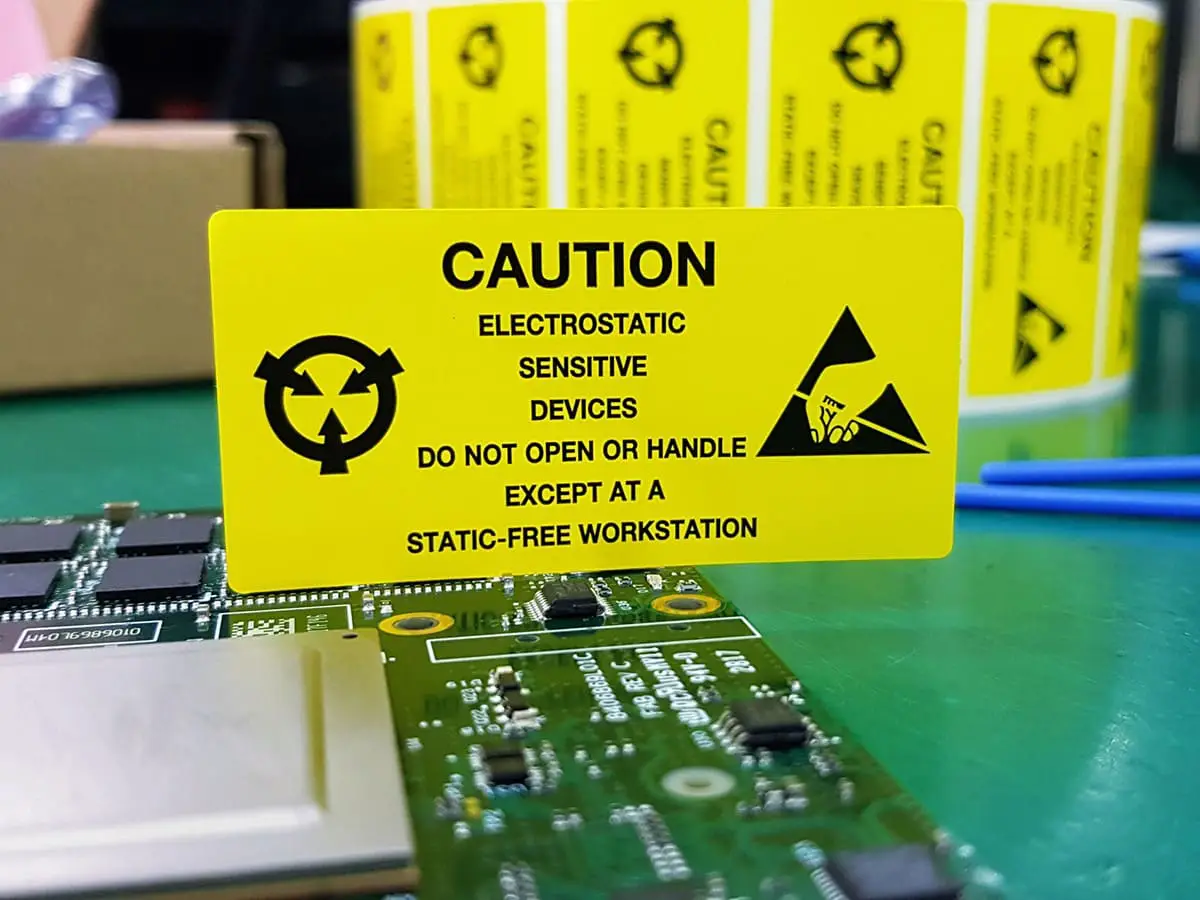It also happens to you. You grab a door handle or get into your car and you get a light electrical shock. We are confronted with static charges and discharges on a daily basis, but these do not affect us most of the time. Fortunately, these electrostatic discharge sparks do not have any influence on our health and well-being, not even at levels well over 20,000 Volts.
When we talk about electronics, especially when the components and assemblies are still being processed in the production areas, the situation is quite different. Most components are very sensitive, and damage can easily occur, even at much lower charge levels, so also at levels well below 100 Volts. For this reason most companies that process or handle electronic components and assemblies have established ESD control programmes to eliminate or reduce the risks involved.
There are two series of documents for ESD control programmes in use throughout the industry. The IEC 61340-5-X series is most widely used in Europe, and the rest of the world generally bases its ESD control plans on the ANSI/ESD S20.20. Both documents highlight the need to appoint an ESD Coordinator or Programme Manager, someone who is responsible for the implementation and verification of the ESD control programme in use in his company. In some companies he is also responsible for the proper measures to be taken to educate all staff.
Typically, an ESD control programme has to be tailored to the specific needs of each company and its processes. ESD prevention measures have to be blended for optimum result. Therefore an ESD coordinator not only has to know the ins and outs of his company but also the applicable standards for ESD control programmes. Obviously, he has to be fully aware of ESD, the detrimental influence on modern electronics and ways to successfully prevent any damage.
PIEK’s Plant Auditor / Trainer certification course provides the ideal training to prepare a person within your company for his task as an ESD Coordinator. This training course has been updated recently and is now fully in compliance with the latest ESD Standards. It contains the information from IEC 61340-5-1, IEC 61340-5-2, IEC 61340-5-3 and ANSI/ESD S20.20:2014. Furthermore, it provides a participant with all the necessary general information needed on ESD and its influence on electronic products.
Not only are the topics dealt with in theory, the course also provides a general ESD introduction to as well as a detailed study of the relevant standards. Various demonstrations are also part of the course, which allow for a theory-practice transfer. The course is rounded off by a theoretical exam as well as actual measurements in the production area by the participants, supervised by our instructor. The test equipment needed for this will be supplied by PIEK.
In conclusion, the course gives your ESD coordinator the tools necessary to adequately set up and implement an ESD control programme and perform all the necessary tasks with relation to the qualification of ESD control items, training of staff, compliance verification in the form of audits, grounding issues, workstations, packaging issues and the proper marking methods.






